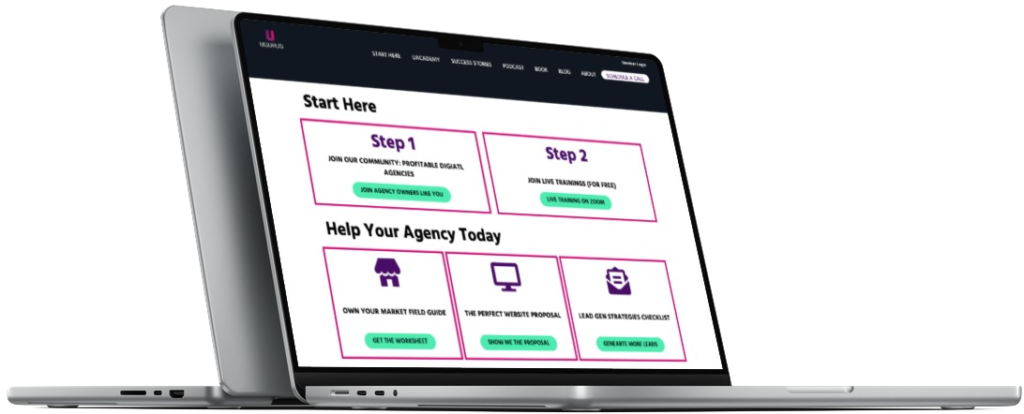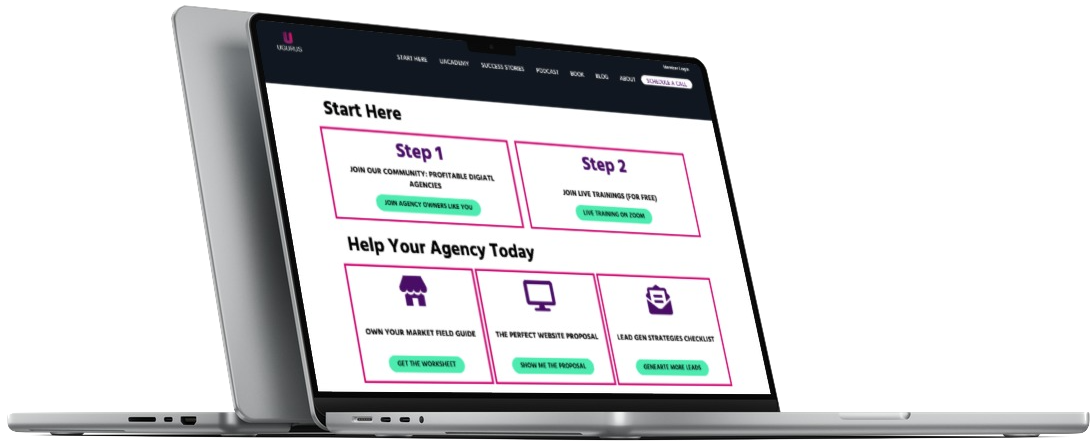Labels are important. It’s how we humans categorize things. It’s how we know when you yell to a friend:
“There is a bear outside!”
That you aren’t talking about an ice cream truck. Which of course if you did think that, something might very well get eaten… but it’s probably you that’s the ice cream.
So we can all agree that labels and categories are important. They help us think, organize, and solve problems.
In the web professional world, there are two big categories that seem to define how we fit in the ecosystem from our clients’ perspective.
Freelancer or Agency
And a lot of us wrap a big part of our identity, pricing, and problem solving ideas around these words.
At a most basic level, most agree that the “freelancer” tag is typically associated with an individual who has a specific skillset and sits in a single seat. And most also hold a stereotype of less expensive. After all, freelancers don’t need offices, payroll, management, or kegerators (a six pack will do).
And most agree that the “agency” tag typically belongs to a collection of people who have complementary and varied skillsets that sit in multiple seats. They also immediately hold a stereotype of more expensive. After all, agencies need offices, payroll, management, and kegerators (because a six pack just won’t cut it).
At first glance you probably hone in on the fact that I said “freelancer” equals less expensive and “agency” equals more expensive.
Now you could look at those loose definitions and think, “well I will just start calling myself an agency so I can charge more!” And that might just work. Except if you aren’t a collection of people and your client gets the vibe that you are just trying to charge more without providing any additional value or security, that tactic might end up backfiring.
Let’s Backup a Minute
I worried a lot more about labels earlier on in my career. I also worried about a few other things that I realize now have little impact on whether or not you get the deal:
- Office space
- Glossy proposals
- Wine and dine
Over the last fifteen years as a web professional, I have learned that clients want value. They want a return on their hard earned investment with you. They want you to solve a real problem for them. Or even help them find a deeper problem that only you can discover.
If you are spending your time thinking about whether or not a client is going to hire you based on whether or not you identify with the term “freelancer” or “agency,” well, you are probably focused on the wrong thing.
Instead lose sleep over how you are going to figure out what the real problem is with this client and how you are going to solve it for them.
Just remember: clients are after value, not labels.
Handling Risk
Being able to communicate that you can deliver value is only half the battle. Your client also needs to trust that their investment is going to be safe in your hands. In my experience, the more established a company is (more revenue, more time in business), the more they are going to want the “agency” label as a consideration to reduce risk.
So you can either adopt the “agency” or “virtual agency” label as a way to gain these types of clients without risking them thinking you are just a “freelancer.”
But again, if you aren’t really an agency (virtual or not), they will see right through the label as to how you really operate.
A lot of that comes down to the vernacular you use and how you operate with that customer. If you don’t know what you are doing, aren’t professional, and ooze rookie, then the client will internally assume you are a freelancer without you even acknowledging a label either way.
Most agencies aren’t trying to win clients by calling themselves an “agency.” The fact that they can charge more and seem less risky than their freelancing counterparts has more to do with how they operate. They have sales people or consultants that know what clients are really after. They have individuals on their team that have a narrow and highly tuned specialization.
Agencies thrive on process, have dedicated support team member, and can handle a lot more projects simultaneously.
So if you are going for the “virtual agency” label, you might consider a list of things to button up if you are going to act the part in order to make sure you aren’t just calling yourself a new label, but actually delivering more value to your client in the process.
Why Use Freelancer?
If you are one (narrow focused solopreneur looking to book some hours), then seize it. There are many companies that want freelancers and not agencies. For example, I regularly hire freelance contractors to do very specific work (copy, design, code, data mine, etc). In these particular cases, I’m looking for a skill at a competitive price.
I don’t want an agency to come in and start driving my strategy. I’ve already built my strategy. I need execution.
So if you are a freelancer with a narrow skillset, you obviously don’t want to go looking for paid gigs with full service agencies and call yourself an agency if they are looking for freelance help: because that might automatically disqualify you.
As it would quite often with us.
There is a time and place depending on your goals.
GET YOUR FREE AGENCY ACCELERATOR PACKAGE





